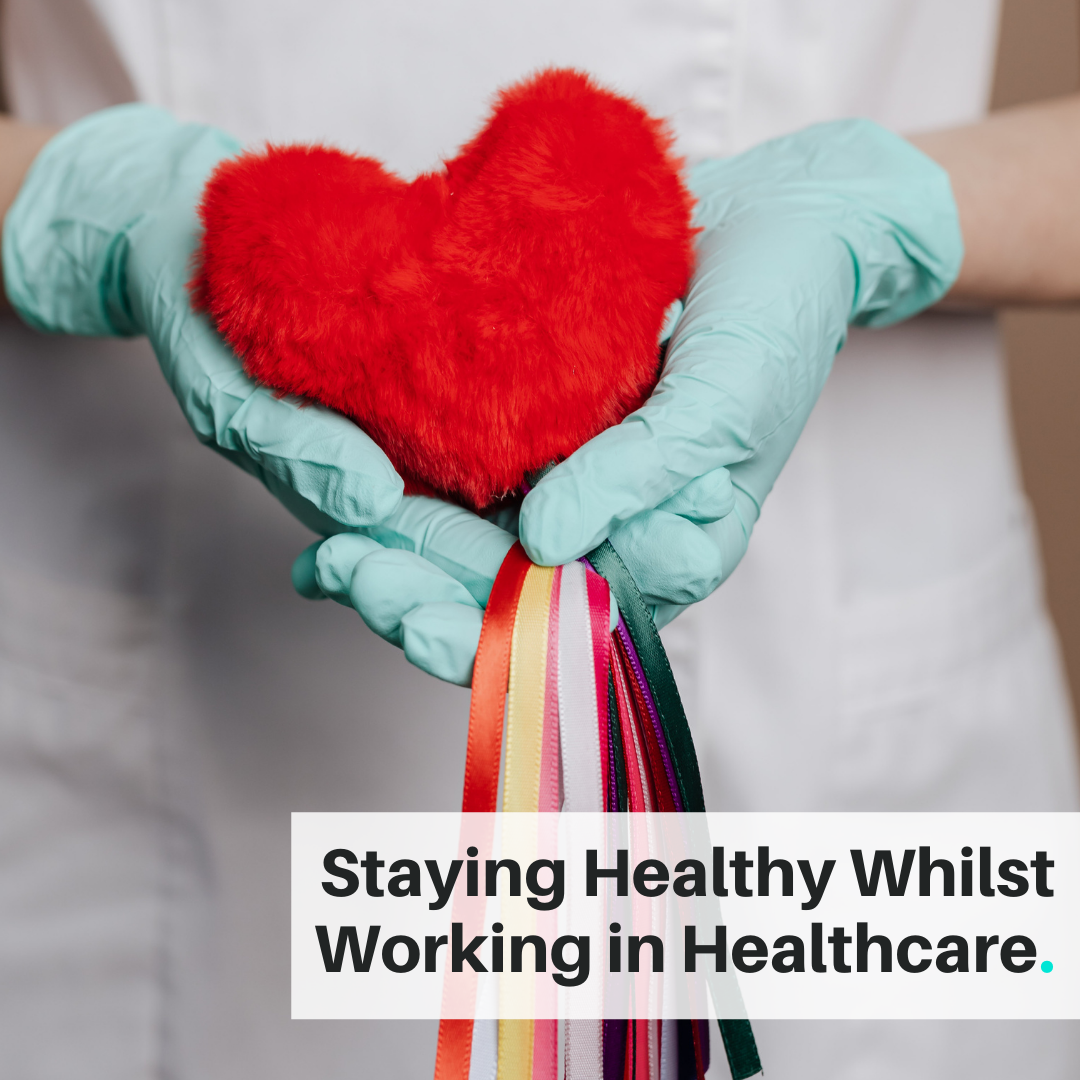
Staying Healthy Whilst Working in Healthcare
In relation to ‘On Your Feet Britain – National Activity Awareness Day’ (which focuses on office workers), we wanted to also focus on all of the doctors, nurses, physicians, and NHS workers who are on their feet pretty much all day; but who also may be neglecting their own health.
If you are a healthcare worker, we understand that putting your health first is a lot easier said than done - especially when you are exhausted or have not got the time to do the things you would usually suggest to your patients to do, to keep a healthy and balanced lifestyle.
Most healthcare workers are on a shift-basis, which is widely linked to several health problems such as, weight gain, blood sugar issues (diabetes), heart disease and burnout.
Therefore, we wanted to give you some easy and helpful ways in which you could start changing your health habits from today - without making any drastic changes, which will eventually wear off.
#1 Protect yourself from infections
Given the latest COVID-19 pandemic, this point should be a given; but COVID is one of many infections which can be found in hospitals, whilst working with ill patients.
Therefore, ensure that you are keeping on top of your hand washing or sanitising, requesting PPE when you feel the need and making sure that you are up to date with different vaccinations and regular health-checks.
#2 Eat
Late nights may make it easier to reach for the sugary fast food to give you the energy boost you may need, but ultimately this is causing more harm than good. Due to our glucose and fats levels being higher in the evening and night times, foods like this will only push blood levels to a ridiculously high level.
Instead, try and make your meal choices the same, as if you were eating on a normal 9-5 day.
In article ‘How can I stay healthy when I work shifts’ by BBC Trust me, I’m a Doctor, she suggests that this means, ‘to avoid large fatty meals during the night, instead choose light meals earlier in the evening and in the morning, including foods such as vegetables, lean protein (nuts, seeds, small amounts of lean meat or fish or cheese), fruit and salads.’
#3 Make exercise a priority
You will know that 30 minutes of exercise a day is proficient for keeping your fitness levels up and keeping diseases at bay.
If you are on a late shift, it is always best to do it before you go into work, as it will give you the energy and endorphins ready to take on the world. Not only that, by the time you finish your shift you will be ready for rest and bedtime!
However, some may find it difficult to fit in exercise before or after work, but another good suggestion (if you don’t live too far from your workplace) was suggested by Senior Cardiac Nurse, Amy Thompson in ‘What doctors really do to stay healthy’:
“In my job as a senior cardiac nurse, I’m only too conscious of the damage caused by being unfit - being physically inactive is a top risk factor for heart disease. Your heart is a muscle that needs exercise like any other - so being active every day is a priority for me. It can be really hard to find the time when you work long hours, so I’ve become part of the cycle to work scheme. I do a 25-minute cycle every morning and evening, it saves me loads of money and I don’t even have to think about exercise.”
#4 Take care of your mind
If anything, this should be the most important point.
Dealing with daily stresses, emotional and sometimes demanding patient experiences, as well as long hours can take its toll and lead to anxiety, depression, and burnout.
Due to the COVID-19 pandemic, it has now been made a top priority that healthcare workers have staff mental health and wellbeing hubs to hand, for whenever they are struggling or just need help to deal with certain issues - the link for this can be found here.
Another way to look after your mental health is by getting enough sleep in and allowing yourself even just five minutes of mindfulness, breathing slowly and being present.
Getting enough sleep and meditating both have tremendous health benefits.
#5 Spend time just being you
As mentioned above, there is a lot to be thinking about in your role, which can distract you even after finishing your shift, but it is important to learn to let go and allow time for you.
In article ‘Staying healthy while working in healthcare’ they state:
‘If you work in healthcare, you will benefit from learning to let go of things. That does not mean you don’t try to do your best. Instead, it means realizing your best is all you can do. You can’t always fix every situation, and not every patient will want your help or follow their treatment. Also, despite your best efforts, some patients will not survive. Sometimes you have to accept you did all you could and leave work at work.’
So with this being said - allow yourself to spend quality me-time, or time with your family and friends; spend time laughing and doing your favourite hobbies.
Through spending time doing these simple things, you can expect to be mentally and physically stronger and ready to take on your next shift at work, whilst feeling good about and within yourself.
-
Resources: https://www.globalpremeds.com/2016/01/28/staying-health-in-healthcare/ https://www.goodhousekeeping.com/uk/health/health-advice/a531687/what-doctors-really-do-to-stay-healthy/ https://www.dukehealth.org/blog/how-doctors-stay-healthy-year-round-and-how-you-can-too



